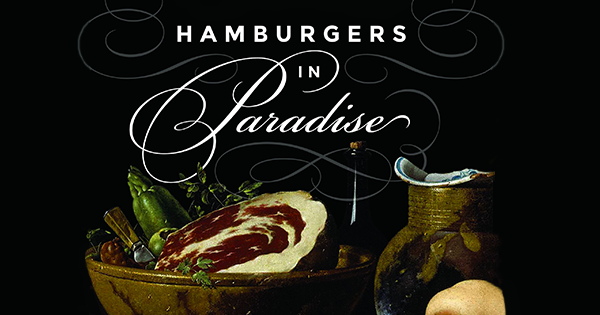Hamburgers in Paradise
Read an excerpt from Louise O. Fresco’s new book about the story of food

“It took the apple thousands of years to become the most widely distributed fruit tree in the world,” Louise O. Fresco writes, “whereas the hamburger established itself within half a century in almost every capital city.” That comparison gives some perspective on how much our relationship with food has changed since the Industrial Revolution, thanks to game changers like refrigeration, mass production, and McDonalds. It also forms the titular inspiration for Fresco’s new book, Hamburgers in Paradise, a cultural history of food production and consumption that asks the big questions facing global eaters today. How do we translate abundant agricultural production into sufficient food distribution? What significance do labels such as “GMO” and “organic” have to the actual food in question? Is sustainable food production possible, and what does it look like?
Woven into these questions are insights into the cultural history of staple diets, social movements such as “locavorism,” and urban food systems. Unsurprisingly, what we eat also turns up quite a bit in art and mythology—much like the apple of our era, the hamburger.
Eve’s apple is no longer the symbol of evil. On the contrary, apples had their reputation salvaged long ago by the more recent habit of seeing them as healthy, even if that notion has recently become controversial because of their high sugar content. Apples no longer have the tempting character they once had for naughty children who cycled past orchards on their way home from school, and no one talks any longer of an apple-cheeked child. If Eve’s perfidious apple has a present-day equivalent, then it is surely the disturbing image of a genetically manipulated apple, sprayed with chemicals and perfect in shape and complexion. Such a fruit is irresistibly appetizing while at the same time symbolizing our fear that arrogant human intervention in nature—by “uncontrollable” commercial firms and irresponsible researchers—will cause irrevocable harm to the earth and to humankind.
The ultimate metaphor of modern temptation and sin is the hamburger. No food product of the past half-century has been more admired or more maligned. Were a modern-day Eve to want to tempt her Adam, she would do so with a hamburger, and with a story to accompany it. That story would tell not just of good and evil but of the rise and fall of the hamburger and the revival of an icon. The iconic hamburger is not just a food but a superfood, larger than life. It has been presented as such by, for example, a gigantic work of pop art called “Floor Burger,” made out of polystyrene foam by Swedish sculptor Claes Oldenburg in 1962. The hamburger stands accused of all the evils of the modern world: of causing obesity, cancer, and cardiovascular disease; infecting the food chain with bacteria; causing the deforestation of the Amazon basin; destroying local culinary cultures and small businesses; imposing the values and uniform eating patterns of Western capitalism; creating food addiction; and much more besides. It was inevitable that documentary filmmaker Morgan Spurlock would use the hamburger rather than any other food product in his film Super Size Me to demonstrate the perversity of American gastronomic culture. The hamburger as proof of the loneliness of the consumer was perhaps best expressed by Danish filmmaker Jørgen Leth, in a 1981 documentary made up of sixty-six scenes from American life, which includes a scene of just over four minutes showing Andy Warhol unwrapping a hamburger, lacing it with ketchup, and eating it, after which he looks at the camera with an impassive expression and tells viewers what they have just seen.
Excerpted from Hamburgers in Paradise: The Stories Behind the Food We Eat by Louise Fresco. Published by Princeton University Press.

